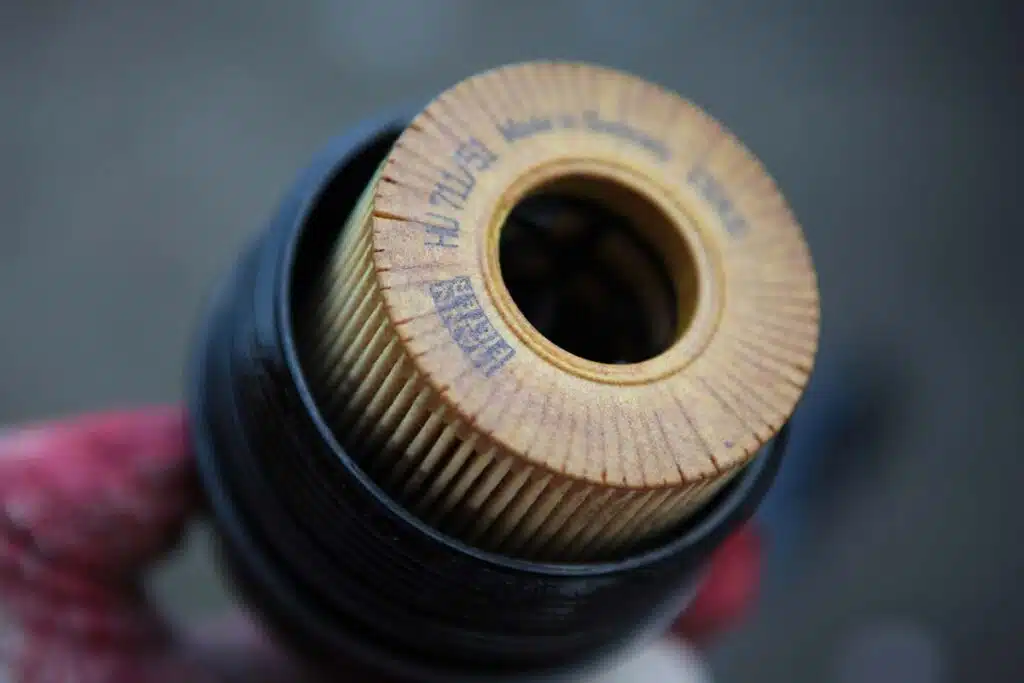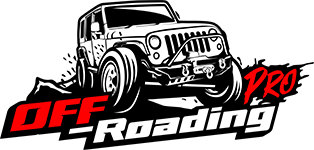A car leaking oil is often shrugged off by car owners, especially if the oil leak is just minor. However, it is counter-intuitive to disregard oil leaks since they can result in environmental hazards and engine damage when left unattended.
Reasons behind a car leaking oil include oil tank overfilling, degraded seals, gaskets, and oil filters, and damaged or failing components. Especially when the engine is subject to heightened levels of heat and stress, the likelihood of a car leaking oil increases.
Here are 13 of the most prevalent causes of a car leaking oil:
- Overfilled oil reservoir
- Accidental spills
- Busted piston rings and valve seals
- Degraded oil filter
- Overtightening or incorrect installation
- Punctures
- Bad connections and leaky seals
- Cracked engine block or cylinder head
- Failing oil-sending unit
- Broken dipstick tube or inlet
- Damaged oil pan (sump)
- Loose filler cap or drain plug
- Non-adherence to scheduled maintenance
This non-exhaustive list covers the reasons behind car oil leaks and the most-asked questions about the topic. Furthermore, this entire guide aims to equip you with how to best address some of these issues.
Many are preventable — they only entail inspecting certain vehicle components and replacing or servicing affected parts as needed. Meanwhile, some situations may require the expertise of a professional mechanic or technician.
Why Is My Car Leaking Oil?

1. Overfilled Oil Reservoir
When our car is leaking oil, we almost always assume that it is due to a faulty gasket or some other complicated engine problem. But we often skip the most obvious reason — overfilling the engine oil reservoir.
Just because we see leaking oil on the ground does not mean we should begin our investigation by checking the underside of our vehicles. Instead, the first thing we should be doing is getting a dipstick reading to see if the oil reservoir is full.
2. Accidental Spills
Another thing we should be checking is whether or not we spilled engine oil while we were filling up the reservoir. No matter how careful we are, sometimes spills are unavoidable.
That said, we should get a dipstick reading and see if any engine oil has been lost. If none, then it is likely that we are seeing remaining oil dripping from the point where it spilled down the engine.
3. Busted Piston Rings and Valve Seals
In this situation, you may notice your engine oil disappearing without a trace of a leak anywhere. And it really would, since oil has found its way into the combustion chamber and is getting burned.
In some cases, however, you may see oil leaks on the ground or engine block. This incident happens only when you synchronously have bad gaskets or other holes leading to the outside of the power mill.
Anecdotally, the car oil leak I described (coming from one bad valve or a warped piston ring) is only a small leak and is often negligible since the combustion chamber burns it off. But when recurrent, it starts becoming a cause for concern since it could lead to oil flooding in the combustion chamber.
When the chamber is flooded with engine oil, its ability to process fuel is adversely affected. Consequently, the malfunction may result in engine stalling or a complete shut-off of your vehicle.
Having piston rings and valve seals replaced by a mechanic is high in the price spectrum and can go up to $2,500. If you want to save on repairs, go the DIY route.
Make sure to have all the specialty tools, replacement seals, gaskets, and temperature-reactive bolts you need. Furthermore, have a plan before starting the procedure.
4. Degraded Oil Filter

Functionally, a vehicle’s oil filter filters contaminants out of the oil before the latter lubricates moving parts of the engine and other relevant systems.
This is a simple function that an oil filter can easily fulfill, provided it is used within its service limit. However, it cannot be helped that some car owners use oil filters beyond their life cycle. The result is a worn-out, broken, or displaced oil filter that has become a common cause of car oil leaks.
Stick to scheduled oil changes (since you are supposed to change your oil filter when you change oil) and recommended service limits.
I know it can be tempting to push the limits of your oil filter sometimes, especially if you are on a budget. However, saving a mere $35 to $75 is not worth risking performance issues or engine damage.
5. Overtightening or Incorrect Installation
Everyone — from the DIYer to the professional mechanic — is prone to make mistakes when installing or servicing car components. While some of these errors are close to immaterial, others can be costly if involving exacting vehicle components like oil filters, seals, and gaskets.
A mere tightness misdistribution or over-torqueing can result in either a pinhole leak or a sizable gush. The same goes for failing to scrape off old gasket leftovers from surfaces before installing brand-new gaskets. Neither is good news for preventing oil leaks.
6. Punctures
Whether inadvertently or otherwise, holes are another main cause of oil leaks. And its occurrence is not limited to deteriorated seals and gaskets exposed to high heat and stress levels.
It can be rather easy to puncture even a brand-new oil filter or your oil pan lid (accidentally, of course!). In worse cases, you may even have to deal with another one of your car components (like a valve rod) piercing through the side of your engine block or the bottom of your oil pan.
7. Bad Connections and Leaky Seals
Let me ask you — what do broken gaskets and bad oil seals have in common? The answer is compromised lubrication lines.
When these tiny parts deteriorate or become damaged, they no longer do their sealing duties. Hence, engine oil that passes through the lines they connect finds pinholes and leaks through them.
To ascertain whether or not your vehicle has bad connections, check the integrity of your engine gaskets and seals, oil pan drain plug, timing cover seal, and valve cover gaskets. Hopefully, you do not find a problem in these areas, as they would warrant extensive repairs that are heftily priced!
8. Cracked Engine Block or Cylinder Head
Cylinder head trauma is one of the lesser-known and easily overlooked causes of oil leaking from cars because there is often no visible trace of an oil leak.
However, the absence of oil leaks on your garage floor is not something to feel relieved about, as it only means that engine oil is not leaking outside but inside your car’s coolant system.
Additionally, getting your coolant contaminated by engine oil is never good since proper lubrication of internal engine components and regulation of engine temperature becomes compromised.
9. Failing Oil-Sending Unit
The oil-sending unit in most modern-day vehicles is meant to regulate the engine’s oil levels and alert the driver via a warning light if oil levels are not up to spec. But because this unit is screwed directly into the engine’s oil pressure system, it can cause a slow oil leak.
Nonetheless, this is normal and usually not a cause for concern. The only time it becomes something to worry about is when your oil light is blinking, or you get inaccurate oil pressure readings.
10. Broken Dipstick Tube or Inlet
Based on online search results, it is rather absurd what causes an oil dipstick tube to get damaged. However, it is clear that it translates to a bothersome repair and severe engine damage when not tended to immediately.
Especially when the broken part of the dipstick is not yet taken out, there is a big chance the broken part can get caught up in a car’s timing chain or other rotating parts.
A telescopic magnet oil dipstick removal tool will come in handy in situations like this and make it easier to remove shards of the broken dipstick.
The level of difficulty and irritation a car owner needs to deal with will be contingent on the make and model of their four-wheeler. For instance, resolving a broken dipstick issue on a 1984 Chevrolet Caprice will be much more taxing than a 1993 Jeep Wrangler.
11. Damaged Oil Pan (Sump)
Vehicles with low ground clearance are expectedly susceptible to having their oil pans damaged by sizable rocks and road debris. But even if a car has decent clearance, this proclivity still exists because of where the oil pan is situated.
If your vehicle is experiencing an oil leak from the front, ask yourself if you have driven over bumps or done some off-roading over the weekend. And if so, check your car’s undercarriage and see if your oil pan is not cracked, punctured, or dented.
12. Loose Filler Cap or Drain Plug
Typically, it is easy to tell if either of the two is the reason behind a car leaking oil when parked. If you notice oil puddles pooling underneath your vehicle or around the engine and all other probable causes in this list check out, then an ill-fitted drain plug or filler cap is likely to blame.
Thankfully, readjusting the suspected cap or plug does the trick. But if it does not, you can buy a replacement filler cap (view on Amazon) or drain plug that fits snugly in the drain bowl or oil reservoir.
13. Non-adherence to Scheduled Maintenance
Most car owners know that going too long between oil changes is detrimental to their vehicles and can lead to oil leaks. But do they understand why this is the case? I suppose not all of them do.
One of the important aspects of a timely oil change is that it needs to happen before engine oil has a chance to break down. Because the moment that it does, contamination from condensation and combustion by-products becomes easier — eventually leading to acid development in the engine oil. These acids speed up the degradation of gaskets and seals and cause oil leaks.
So the next time you feel like procrastinating, think again. You will avoid much trouble if you go on that scheduled oil change.
Frequently Asked Questions:

Can You Drive With an Oil Leak?
Regardless if it is a slow leak, a car leaking oil should never be driven. Yes, it may be convenient to offset lost engine oil by topping up repeatedly. However, doing so only masks the problem and makes it worse and more costly.
If you are mechanically inclined, the right course of action for you is to investigate where the leak is coming from by checking on the components mentioned in this guide. Otherwise, take your four-wheeler to a qualified mechanic for proper diagnosis and repair.
How Much Does an Oil Leak Fix Cost?
Ultimately, the cost depends on the severity of the oil leak, the culprit behind the leak, and the different solutions available to fix the issue. The vehicle make and model, as well as the type of engine, play a role in the repair costs.
An oil leak involving a cracked engine block, for instance, could go up to $5,000 (including parts, labor, and machining costs). Meanwhile, an oil filter repair/replacement costs anywhere from $20 to $125.
Why Does My Car Leak Oil After an Oil Change?
Usually, car owners see a few oil drips underneath their vehicles a few hours following an oil change. This is normal and should go away afterward.
The oil pan drain plug being removed and replaced during an oil change causes this. Anything else other than a few drips could mean a possible issue with the oil filter or drain plug.
Why Is My Car Leaking Oil When Running?
The cause behind this phenomenon would be item #5 in the above list.
Overtightening or uneven distribution of tightness on the oil pan (sump) gasket and valve cover gasket is one. The other is the improper attachment of the oil filter during an oil change with filter cartridge replacement.
In both scenarios, engine oil seeps through pinholes created by uneven gaskets and loose oil filters.
Is It Normal for an Old Car to Leak Oil?
While oil leaks are unavoidable for vintage cars, they are not something to be considered normal (and, more so, ignored). Regardless of the age of a vehicle, it should not have frequent oil leaks — provided the gaskets and seals have not deteriorated and are in good working condition.
But if the sealing components are in their early stages of wear, I recommend using high-mileage engine oils to help rejuvenate gaskets and seals.
Conclusion – Why Is My Car Leaking Oil?
In summary, here are the most common reasons behind a car leaking oil:
- Overfilled oil reservoir
- Accidental spills
- Busted piston rings and valve seals
- Degraded oil filter
- Overtightening or incorrect installation
- Punctures
- Bad connections and leaky seals
- Cracked engine block or cylinder head
- Failing oil-sending unit
- Broken dipstick tube or inlet
- Damaged oil pan (sump)
- Loose filler cap or drain plug
- Non-adherence to scheduled maintenance
Hopefully, you do not have to deal with an oil leak anytime soon. But should you be in the middle of one right now, then you can trust this guide (and your owner’s manual) to see you through the challenge with flying colors.
Oil leaks are bound to happen, especially to vintage and high-mileage vehicles. Any occurrence that is too premature signifies that you have to adhere to scheduled oil changes and maintenance more stringently.
Kris is an avid off-roader and outdoor enthusiast who loves to brave the elements and take on challenging terrain. He also enjoys sharing his passion and knowledge with others so that they, too, can appreciate the ride.
About Kris
